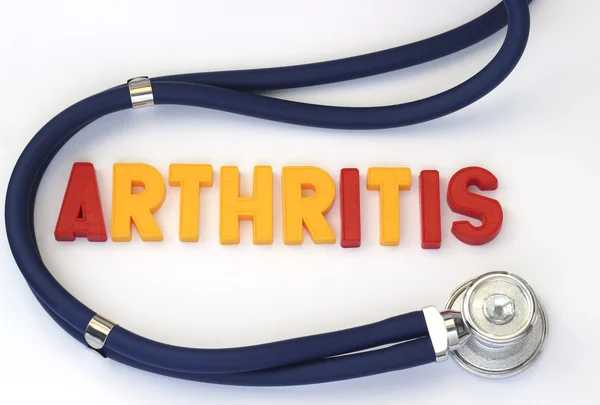Proven Solutions for Substance Abuse: Comprehensive Approaches to Recovery
Substance abuse is a pervasive issue that affects millions of individuals and families worldwide. Whether it's alcohol, opioids, prescription drugs, or illicit substances, the impact on physical, mental, and emotional health can be devastating. However, there are proven solutions for substance abuse that have helped many people reclaim their lives. These solutions involve a blend of medical treatments, therapeutic interventions, community support, and lifestyle changes. Below, we explore some of the most effective strategies for addressing substance abuse.
Substance abuse is a pervasive issue that affects millions of individuals and families worldwide. Whether it's alcohol, opioids, prescription drugs, or illicit substances, the impact on physical, mental, and emotional health can be devastating. However, there are proven solutions for substance abuse that have helped many people reclaim their lives. These solutions involve a blend of medical treatments, therapeutic interventions, community support, and lifestyle changes. Below, we explore some of the most effective strategies for addressing substance abuse.

1. Medical Detoxification
The first step in overcoming substance abuse often involves medical detoxification. This process helps individuals safely remove drugs or alcohol from their systems under medical supervision. Detoxification addresses the immediate physical symptoms of withdrawal, which can be life-threatening in some cases. It is critical to undergo detox in a professional medical setting to ensure safety, comfort, and proper care.
- Opioid Detox:For individuals struggling with opioid addiction, medications like methadone, buprenorphine, and naltrexone can help ease withdrawal symptoms and cravings, promoting a smoother transition to recovery.
- Alcohol Detox:Withdrawal from alcohol can result in severe complications, including seizures and delirium tremens (DTs). Medical detox centers often use benzodiazepines and other medications to mitigate these symptoms.
2. Behavioral Therapy and Counseling
Therapeutic interventions play a central role in addressing the psychological aspects of substance abuse. Behavioral therapy helps individuals identify and change negative patterns of thought and behavior associated with substance use. Two widely recognized and effective therapeutic approaches are:
- Cognitive Behavioral Therapy (CBT):CBT helps individuals recognize and change the thoughts and behaviors that lead to substance use. It teaches coping strategies, enhances self-control, and helps individuals manage triggers and cravings.
- Contingency Management (CM):This evidence-based approach rewards individuals for positive behaviors, such as abstaining from substance use, with incentives like vouchers, prizes, or privileges. This method motivates individuals to stay sober and reinforces positive behaviors.
- Motivational Interviewing (MI):MI is a client-centered counseling approach that aims to strengthen an individual's motivation to change by resolving ambivalence and encouraging self-reflection.
3. Medications for Substance Use Disorder
In many cases, medication-assisted treatment (MAT) can provide crucial support during recovery. MAT uses FDA-approved medications to help individuals manage cravings and withdrawal symptoms, making it easier for them to focus on recovery. Common medications used in MAT include:
- Methadone and Buprenorphine:These medications are used to treat opioid addiction by reducing withdrawal symptoms and cravings without producing the high associated with opioids.
- Naltrexone:Naltrexone blocks the effects of opioids and alcohol, reducing cravings and the risk of relapse.
- Acamprosate:This medication helps reduce alcohol cravings and maintain abstinence in individuals recovering from alcohol dependence.
Medication-assisted treatment is often combined with counseling and therapy for a holistic approach to recovery.
4. Support Groups and Peer Recovery
Peer support is a critical component of substance abuse recovery. Groups like Alcoholics Anonymous (AA) and Narcotics Anonymous (NA) provide a safe, non-judgmental environment where individuals can share their struggles, successes, and experiences. These groups operate on a 12-step model that emphasizes accountability, spiritual growth, and social support.
- SMART Recovery:For those who prefer a non-spiritual approach, SMART Recovery is an evidence-based program that focuses on self-management and cognitive-behavioral techniques.
- Therapeutic Communities (TCs):These residential treatment centers provide long-term, structured environments where individuals live with others in recovery. TCs focus on building a supportive community that fosters personal growth and peer accountability.
Support groups help individuals feel less isolated in their recovery journey, reducing the likelihood of relapse and providing a sense of belonging.
5. Holistic Approaches to Healing
Holistic approaches to substance abuse treatment focus on healing the whole person—body, mind, and spirit. These approaches often complement traditional medical and therapeutic interventions. Popular holistic therapies include:
- Yoga and Meditation:These practices help individuals manage stress, build mindfulness, and develop emotional resilience. Yoga encourages physical activity, while meditation helps with mental clarity and emotional regulation.
- Acupuncture:Some studies have shown that acupuncture can help reduce cravings and withdrawal symptoms, particularly for opioid addiction.
- Nutritional Counseling:Substance abuse can deplete the body of essential nutrients. A proper diet and nutritional counseling help restore physical health, improve mood, and increase energy levels.
- Art and Music Therapy:These therapies allow individuals to express emotions in creative ways, providing a form of self-healing and self-expression that complements traditional therapy.
These therapies address the underlying emotional and psychological causes of addiction, enhancing the overall healing process.
6. Residential and Outpatient Rehabilitation Programs
Rehabilitation programs are often categorized as either inpatient (residential) or outpatient, depending on the level of care required.
- Inpatient Programs:These programs provide 24/7 medical supervision, therapy, and counseling in a controlled, supportive environment. Residential treatment is typically recommended for individuals with severe substance use disorders or those who have not been successful in outpatient treatment. These programs can last anywhere from 28 days to several months.
- Outpatient Programs:Outpatient treatment allows individuals to live at home while attending therapy sessions, support groups, and medical appointments. This option is ideal for those with less severe addictions or those who need to maintain work or family commitments while receiving treatment.
7. Aftercare and Long-Term Recovery Support
The journey of recovery does not end once treatment is completed. Aftercare programs are essential to long-term sobriety. These programs may include continued therapy, support group meetings, sober living houses, and ongoing medical care. Key components of aftercare include:
- Relapse Prevention Training:Learning strategies to handle triggers and cravings that may arise during the recovery process.
- Sober Living Houses:These are structured, drug-free environments where individuals can transition from residential treatment to independent living, with ongoing support from peers and staff.
- Ongoing Counseling:Continued therapy helps individuals address any unresolved issues and maintain their progress.
Conclusion
Substance abuse recovery is a multifaceted process that requires a personalized approach, incorporating medical, psychological, and social support. Proven solutions such as detoxification, therapy, medication-assisted treatment, peer support, and holistic healing offer individuals the best chance for long-term recovery. It is essential for individuals to work with healthcare professionals to determine the most appropriate treatment plan based on their specific needs.
As more research and innovation continue to improve substance abuse treatment, it is important to remember that recovery is a journey, not a destination. With the right combination of care, support, and commitment, individuals can overcome addiction and lead fulfilling, sober lives.








